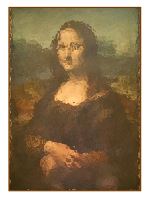6 December 2020
Isaiah 40:1-5, 9-11
2 Peter 3:8-14
Mark 1:1-8
The note of joyful hope, rather than penance, dominates the season of Advent. Nevertheless, the Advent readings call on us to cultivate the soil of our hearts so that we become more open to Christ. Today’s gospel reading urges us, in the stirring words of John the Baptist, to ‘prepare the way of the Lord, make his paths straight’ (Mk 1:3). Jesus wants to make his home in us, and Advent is a good time to do a bit of spring-cleaning and refurbishment in preparation for our honoured guest.
A helpful way of preparing for the birth of Jesus is to check out our image of God. Sometimes we have a wrong or inadequate image of God that prevents us from welcoming Jesus fully into the home of our hearts. Only Jesus reveals the true face of God. We could begin to bring our image of God into focus by reading and meditating on the three parables in chapter 15 of the Gospel of Luke: ‘The Prodigal Son’, ‘the Lost Sheep’, and ‘the Lost Coin’. These parables or stories were told by Jesus precisely to correct the common misunderstanding of God among the Jews of his time, as well as to explain Jesus’ own behaviour in mixing and eating with tax collectors and sinners. These stories reveal not merely a loving and compassionate God, but a God who loves us so much that he continues to seek us until he finds us. This is the Good News that Jesus wants us to accept.
The story is told of a Muslim theologian from Tunis who was asked to translate the parable of the prodigal son into Arabic. When he began to read out the translation he had made, as the story goes, he wept with joy for he had not imagined that God could have such tender love for his creatures. A Jewish scholar commenting on the three parables in Luke 15 has this to say: ‘In these parables Jesus is not just passing on a commonplace idea in the teaching of his day. He is saying something of which his contemporaries knew nothing: he is proclaiming the truth that God is a seeking God, one who reaches out in love to the sinner and brings him home.
A meditative reading of these parables leads us to ask the question: How do I relate to God? Do I believe in the God presented in the stories of the Prodigal Son, the Lost Sheep, and the Lost Coin? Do I believe that God searches for me in the same way a shepherd does for the lost sheep? Do I believe that God is like a father (or a mother) who sees his lost son from afar and goes to meet him, totally oblivious to the utterly self-centred and wasteful way his child has lived his life? Do I believe that it is this reception and this alone which gives the son the strength to go ahead and meet his father? Luke 15 brings me to a decision. Do I really believe that God is, day after day, on the way to meet me?
The opposite of love is not hatred; it is indifference. Our greatest sin against God’s incomprehensible love is our indifference. God’s love leaves us cold. In theory, we may acknowledge God’s unconditional love; yet, it is only in our actual living, the way we relate to ourselves (our image of ourselves as loved beyond measure), to others and to the world, that we manifest the kind of God we really believe in. If we really embraced with all our heart the God that Jesus reveals, if we really said ‘amen’ to his love, we could not help but be changed by it.
 I conclude this homily with a few lines from a poem penned by the renowned New Testament scholar, N.T. Wright, to be found in his book, The Challenge of Jesus. Wright wrote this poem after visiting the Louvre museum, where he was only able to view Leonardo da Vinci’s famous painting, the Mona Lisa, from behind thick glass, owing to security concerns. He could not get a proper view of the famous eyes in this intriguing portrait because of all the reflections in the glass. This experience, he says, illustrates how we often view God, the world, and one another through the ‘projections of our own anxieties’. Wright finally invites us to trust and see, and to let God’s love set us free. Here are the last lines of the poem.
I conclude this homily with a few lines from a poem penned by the renowned New Testament scholar, N.T. Wright, to be found in his book, The Challenge of Jesus. Wright wrote this poem after visiting the Louvre museum, where he was only able to view Leonardo da Vinci’s famous painting, the Mona Lisa, from behind thick glass, owing to security concerns. He could not get a proper view of the famous eyes in this intriguing portrait because of all the reflections in the glass. This experience, he says, illustrates how we often view God, the world, and one another through the ‘projections of our own anxieties’. Wright finally invites us to trust and see, and to let God’s love set us free. Here are the last lines of the poem.
…….So, now, we view
The world, each other, God, through prison glass:
Suspicion, fear, mistrust–projections of
Our own anxieties. Is all our knowing
Only reflection? Let me trust, and see,
And let love’s eyes pursue and set me free.
And when that love frees and transforms us to be all God wants us to be, we will in truth be transparent witnesses of his love in our world.
Michael McCabe SMA, Cork
Click on the play button below to listen to an alternative homily from Fr Tom Casey SMA

You must be logged in to post a comment.